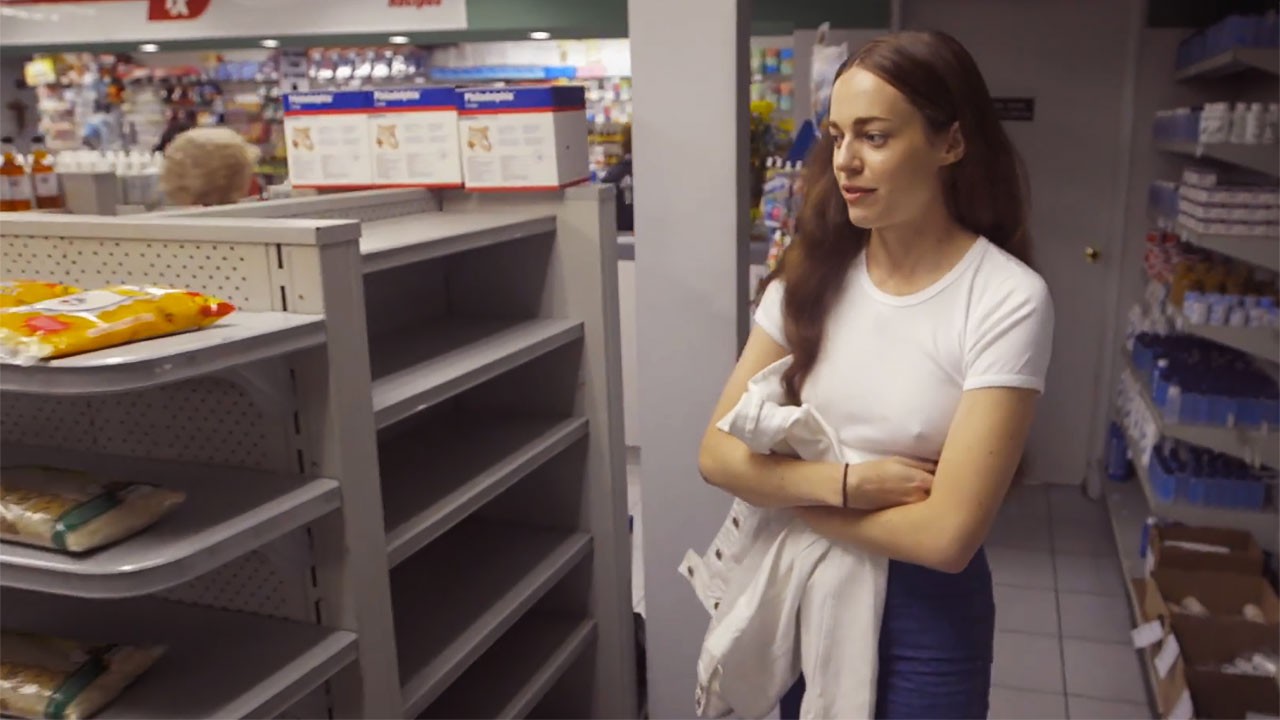While birth control continues to be a major issue for individuals who identify as female here in the U.S., another problem looms large: many of them, both teens and adults, don't have access to, or can't afford, basic feminine hygiene products. In fact, some become so desperate that they will take bus rides for hours to shelters they heard "might be carrying them that day" or will use dirty paper bags they find on the sidewalk in the place of sanitary pads.
Advertisement
According to The US Dept of Housing and Urban Development Annual Homeless Assessment Report, shelters report that menstrual products (tampons and pads) are some of the most requested, yet least donated, products. Women who cannot afford menstrual products reported that they substitute with whatever they can find: toilet paper, paper towels, rags, even dirty socks. Without access to period products, these women are at risk for infection, making a lack of access to clean feminine hygiene supplies a health issue and a human rights issue.Anne M. Rios, Esq., Executive Director of Think Dignity, says that for many, the cost of these products are prohibitive, and when deciding whether or not they are going to eat or buy menstrual products the majority of folks will choose eating."This leads to unsanitary practices like using old socks, rags or clothes as pads, which can lead to significant health risks like HPV and incontinence," she said.All of Think Dignity's programs are the result of asking people how they can best help them while they are living on the street, which is how their Street Boutique program was born; it involves the distribution of menstrual products and undergarments, which people living with homelessness said was a major hurdle for them to cross.
A lot of social service organizations are led by men, and they don't necessarily think of pads or tampons as being an urgent need for the women they serve.
Advertisement
To Rios's knowledge, there are no public officials advocating for better access to these items among this population, at least, not locally in San Diego, California. "It would be great to have these items available for free. We consider it gender discrimination that these items are not readily available for all and are taxed. Those who bleed are discriminated against by having to pay for necessary items that are a result of biology," she said.
Check out more videos from VICE:
Nadya Okamoto, 19, first learned about the struggle several years ago while speaking with women at a homeless shelter, where she stayed for a single night with her sister and mother while experiencing temporary housing insecurity. The subject seem to come up again and again after that, with conversations on public transportation with women in need who most of us wouldn't think to strike one up with. Her experience motivated her to start PERIOD, a nonprofit that helps distribute these products to women across the country.She held donation drives and bagging parties that yes, even boys participated in."This is not just a woman or girl's issue. Ensuring menstrual equality is about ensuring the right of every person to discover and reach their full potential," she said. "It is not only women and girls who menstruate, but also transgender men and people who identify as non-binary."
Check out more videos from VICE:

Nadya Okamoto, 19, first learned about the struggle several years ago while speaking with women at a homeless shelter, where she stayed for a single night with her sister and mother while experiencing temporary housing insecurity. The subject seem to come up again and again after that, with conversations on public transportation with women in need who most of us wouldn't think to strike one up with. Her experience motivated her to start PERIOD, a nonprofit that helps distribute these products to women across the country.She held donation drives and bagging parties that yes, even boys participated in."This is not just a woman or girl's issue. Ensuring menstrual equality is about ensuring the right of every person to discover and reach their full potential," she said. "It is not only women and girls who menstruate, but also transgender men and people who identify as non-binary."
Tampons are taxed in 37 U.S. states because they are "not considered necessities."
Advertisement
The PERIOD team is currently working on a campaign called "People of Periods" to help make the movement more gender-inclusive. That, in addition to "addressing" over 80,000 periods through 43 nonprofit partners in 27 states and 15 countries, and registering over 83 campus chapter at universities and high schools around the United States. Currently, PERIOD promotes advocacy, education, and service—to find out how you can take action by starting a chapter, host a packing party, or make a contribution: for every $2 donated, they can address "at least one more period."There are also recently-founded feminine care companies dedicated to providing these resources, such as Lola, Cora, Veeda, and Conscious Period. Sometimes, it comes full circle—Veeda, for example, works with PERIOD as one of their distributors for which to send 30,000 products each. Conscious Period co-founders Annie Lascoe and Margo Lang are actively involved in lobbying to repeal state sales tax on feminine hygiene products, offer free menstrual products in schools and shelters, and providing information to help people gain the resources they need to lobby for these changes in their communities—right now, tampons are taxed in 37 U.S. states because they are "not considered necessities."Ann Steiner Lantz, Executive Director of Ecumenical Social Ministries in Colorado Springs, CO, believes one of the reasons these needs are overlooked are because there are still a lot of people—men in particular—who are uncomfortable talking about feminine care items.
Advertisement
"A lot of social service organizations are led by men, and they don't necessarily think of pads, tampons, etc. as being an urgent need for the women they serve," she said. "Therefore, the options are unfortunately very limited for the women in these situations. Some of the agencies in our city give out tampons or pads—three at a time. "Women who have started their period and have no supplies are quickly given clean pants, underwear, pads or tampons, and a shower at the Ministry. "The relief on their faces when we tell them what we have for them is just amazing, and we made the decision in November of 2016 that we would never be without pads and tampons," Lantz said.The organization gives out full packages at a time thanks to the help of supporters like Distributing Dignity, a nonprofit whose mission is to distribute new bras, pads and tampons to women in need. Joanie Balderstone and Rebecca Mcintire, Co-Founders of the nonprofit, have helped distribute 210,000 sanitary products across 13 states, helping women not just in homeless shelters, but in foster care, those seeking refuge from domestic violence, veterans, and fighting life altering illness or displaced by disaster.Lantz encourages everyone to think about donating essential items they use on a daily basis, as those are the things that people experiencing homelessness often need the most."It's really all about dignity," she said. "People who are experiencing homelessness have had their dignity stripped away in so many ways, and by providing these items that are so essential, we help them reclaim it.""It's really all about dignity."
